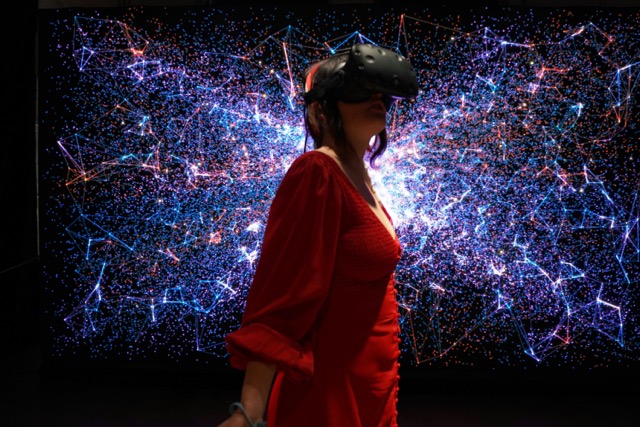As we move steadily on into the 21st Century, the capabilities of developing technologies continue to astound. Topping the bill in recent times is the exponential growth of AI. From article writing to image creation, and on to sports prediction AI, which may be of interest to those accessing this site, which lists the latest betting offers for sports, AI is rarely out of the tech news.
The gaming industry is poised on the cusp of a technological revolution, with generative artificial intelligence (AI) leading the charge. This form of AI, capable of creating text, images, and audio in response to user prompts, is set to transform the very fabric of video games, making them more immersive, dynamic, and engaging. From non-player characters (NPCs) with unparalleled realism to vast, explorable worlds that adapt to player actions, the possibilities are nearly limitless.

The Evolution of NPCs Through Generative AI
One of the most groundbreaking applications of generative AI in gaming is in the development of non-player characters (NPCs). Traditionally, NPCs are scripted with predetermined responses and behaviours, which can sometimes feel repetitive or predictable to players. Generative AI, however, introduces a level of dynamism and realism previously unattainable.
🏆
The 2024 Creative Retail Awards are open for entries.
The Creative Retail Awards are much more than a mere accolade; they represent the pinnacle of achievement in the retail industry. Garnering a nomination or winning one of these awards is a testament to innovation, excellence, and leadership.
www.creativeretailawards.com
In recent developments, companies like Ubisoft’s La Forge have pioneered tools such as Ghostwriter and speech-to-gesture animations. Ghostwriter assists game writers by generating diverse dialogues for NPCs, enhancing their interactions with players. Meanwhile, the speech-to-gesture technology allows NPCs to display body language that matches the tone and mood of their spoken words, adding a new layer of realism to their interactions.
These advancements enable NPCs not only to respond in varied and unexpected ways but also to evolve based on player interactions, making each gaming session unique. This unpredictability and realism can significantly enhance the player’s immersion and emotional connection to the game.
Generative AI’s Role in World Building
Generative AI also promises to revolutionize how game environments are created. Traditional game development involves manually designing levels and environments, a process that can be both time-consuming and costly. Generative AI offers a solution by automating these tasks, potentially generating infinite landscapes and detailed worlds that react dynamically to player actions.
For example, games like “No Man’s Sky” utilize procedurally generated content to create a vast universe of over 18 quintillion planets, each with unique flora, fauna, and geology. This technique, while impressive, is just the beginning. With generative AI, future games could offer even more detailed and responsive environments, crafted in real-time to adapt to and challenge the player in personalized ways.
Enhancing Game Development and Player Interaction
Beyond improving in-game characters and environments, generative AI can streamline the game development process itself. By automating the creation of certain content, AI allows game developers to focus on crafting more intricate and emotionally engaging experiences. This not only speeds up development cycles but also reduces costs, enabling studios of all sizes to produce content that might otherwise be out of reach.
Moreover, generative AI can significantly enhance player interaction. AI-driven game elements can learn from each player’s style and preferences, adjusting challenges and narratives to provide a tailored experience. This personalization makes games more accessible and enjoyable, as players feel their actions have a meaningful impact on the game world.
Ethical Considerations and Future Challenges
As with any technology, the integration of generative AI into gaming does not come without its challenges. Ethical concerns, such as the potential for AI to make decisions that could affect game narrative or player perception negatively, are at the forefront. Moreover, there is the risk of diminishing the role of human creativity in game design, though many industry experts view AI as a tool to augment rather than replace human input.
Additionally, as generative AI becomes more prevalent, issues such as data privacy and security will become increasingly important. Game developers will need to navigate these challenges carefully to fully harness AI’s potential while respecting player privacy and ensuring security.
Conclusion
The future of gaming looks bright with the advent of generative AI, offering a new frontier of interactive experiences that are more immersive, personalized, and engaging. As this technology continues to evolve, it promises to redefine our expectations of video games, making them more than just entertainment—transforming them into truly living, breathing worlds that respond to and grow with the player. This evolution will not only attract more players but also push the boundaries of what is possible in digital storytelling and interactive design.
















